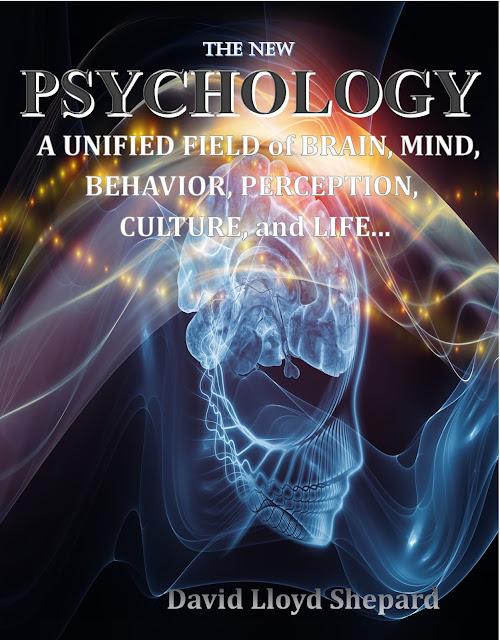The New PSYCHOLOGY: A Unified Field of Brain, Mind, Behavior, Perception, Culture...: Abbreviated Edition
From the mind of genius to the suicide bombers of today’s news, from science to sex, understanding is essential to psychology. Memorizing facts is not what psychology is about.
At the witch trials in Salem, when an accused “witch” was brought into court, adrenaline and cortisol would have shot into the blood of those who watched. Neurotransmitters would have surged through their brain. Their brain waves would have jumped from 12 to 40 cycles per second. A P300 wave would have screamed “ALERT!”. Their GSR spiked. Their heart jumped. A chill went up their spine. The girls shrieked “Witch! Witch!”
We know this because today, the same thing happens in America among theater goers in a movie from Hollywood about witches, zombies, demons, a scary “Chucky” doll, and more. As adrenalin and cortisol shoot into your blood, neurotransmitters surge through your brain, your heart jumps, and it grabs the immediate attention of your brain, as you watch the Zombie apocalypse in a theater. In varying degrees, this is basic to understanding how our brain works in dealing with anxiety, depression, politics, love, sex, interpersonal relations, peer group pressure, your response on a polygraph or GSR, and every new witch hunt (see Ch. 2, 8, 19, 20 and 22).
Psychology controls the biology in our brain. If we fail to understand this, we cannot understand how the human mind works. The failure to understand that has led to the media’s preoccupation with claiming it is all in your DNA or biochemistry. Even our PhDs are shortchanged by this myth.
The same psychology that controlled the emotions of the people of Salem, also controls our fears and anxiety, our depression and worries, our hope and success, and our very perception of reality, to this day. Understanding this, gives us the potential to control our own mind. To not understand this, is a failure of our educational system and our society.
Years from now, we will probably have forgotten the studies about what the Frontal Lobes do, but all of us still remember the story of what happened to Phineas Gage when a steel rod was blown through the frontal lobes of his brain (see Chapter 4).
We may only dimly remember the Formal Scientific Techniques, but we will remember how the best doctors in America opened a vein to bleed George Washington of 40% of his blood (he died), and Sear's Electric Belts, and witch hunts, and demon possession, and what that says about why we need the scientific methods (Ch. 1).
We will learn nothing from conditioning a dog to salivate to a bell, or memorizing CS, CR, UCS, and UCR; it will be lost in the backroads of their mind as soon as the test is over. But we will remember how the Russians trained dogs to kill tanks in WWII and why this applies to the Kamikaze pilots, the suicide terrorists of 9/11, today’s politics, and interactions with others (see chapters 8-11). From those stories, we hope to have formed an understanding of how we know what we know about the mind.
We may not remember the subtle force of words associated with emotion, but we will remember why a man who lived in a hole in the ground, eating rats, for 30 years, received “over 100 marriage proposals from awestruck women.” Yes, really. We will learn why one of Picasso’s paintings recently sold at Sotheby’s auction for 157 million dollars, while the same painting with your name on it would ruin the value of the canvas it was painted on (p.167). They will remember why Scarlett Johansson’s “snot” sold for $5,300 on eBay. Yes, really.
These are the bits and pieces that make up a deep understanding of how our mind works. I hope I have done them justice. Welcome to the deep woods...
Click here to get The New PSYCHOLOGY on Amazon






Comments
Post a Comment